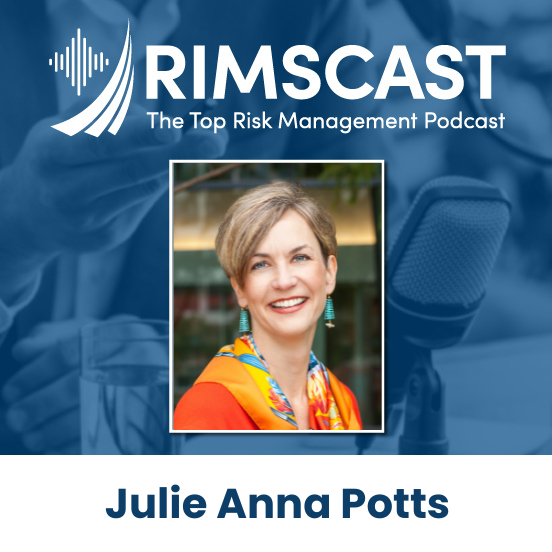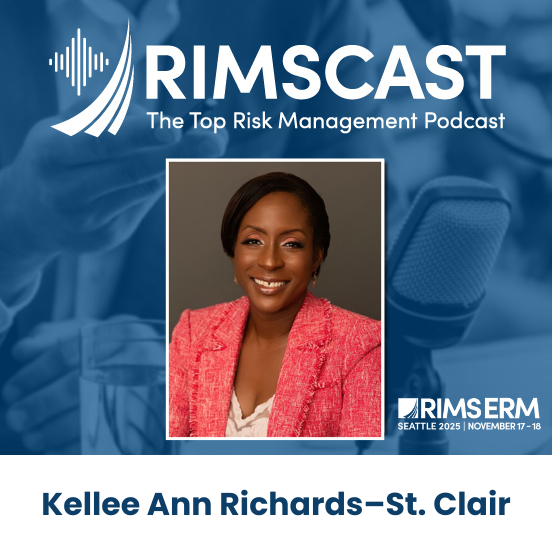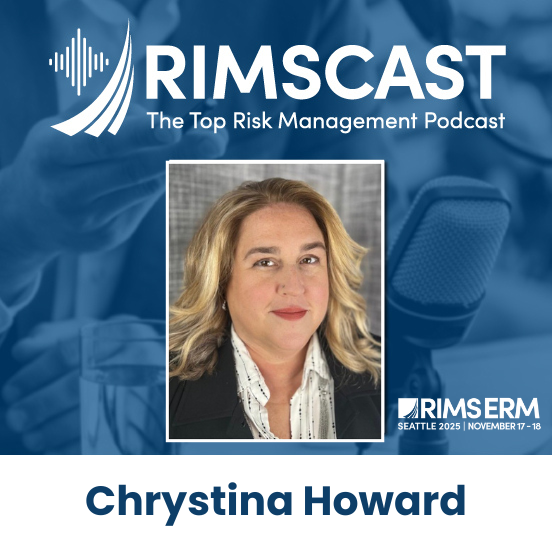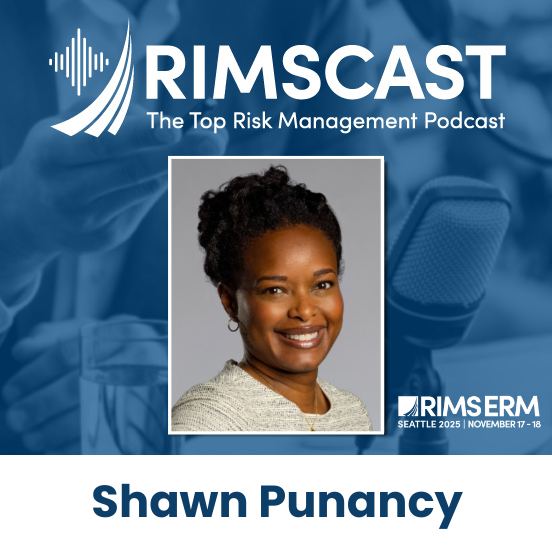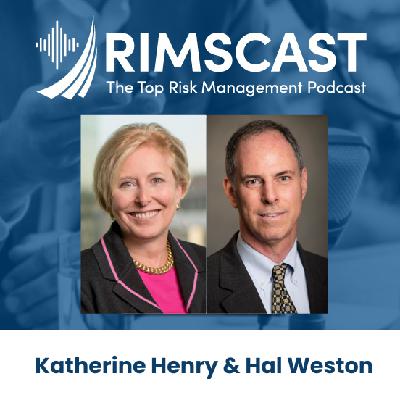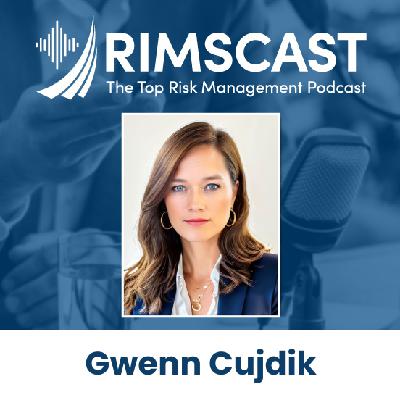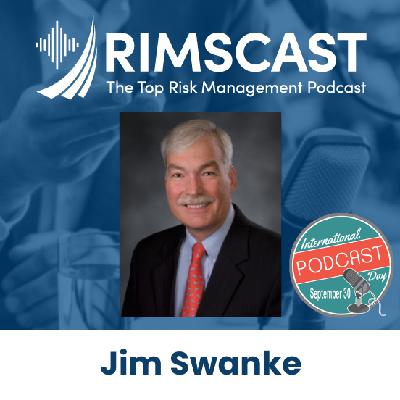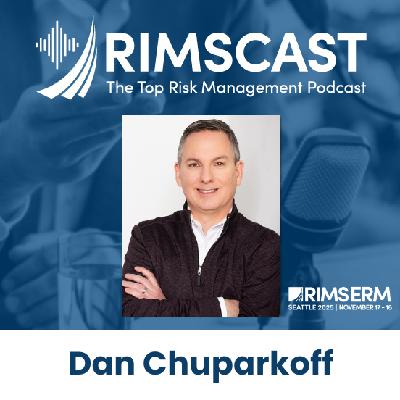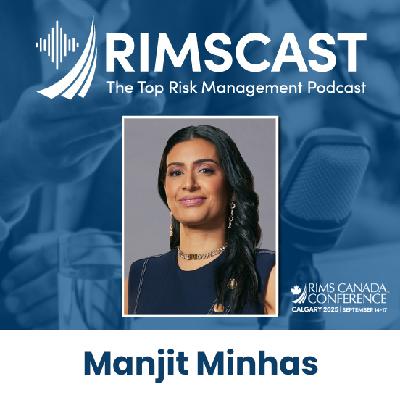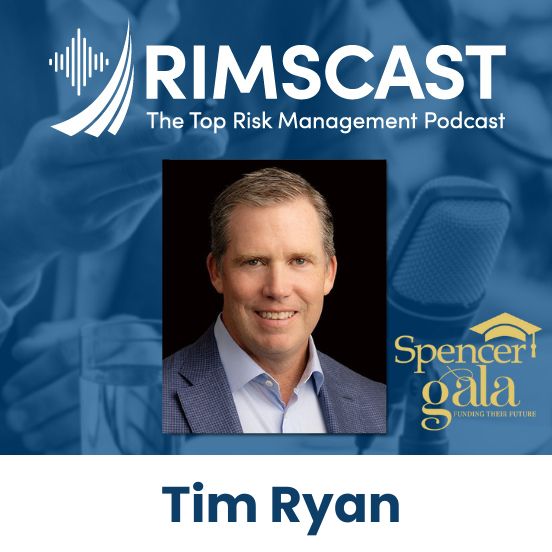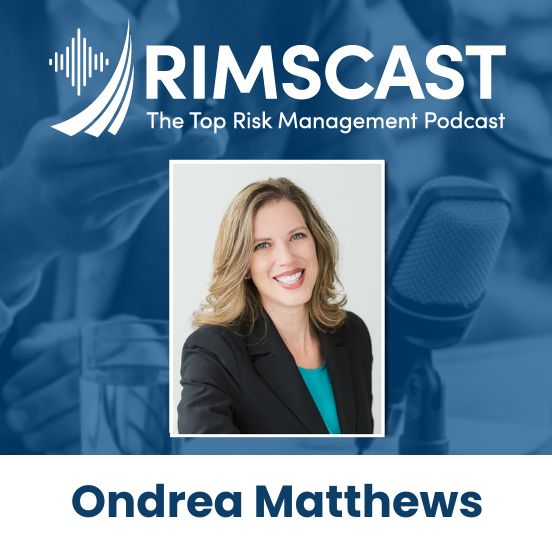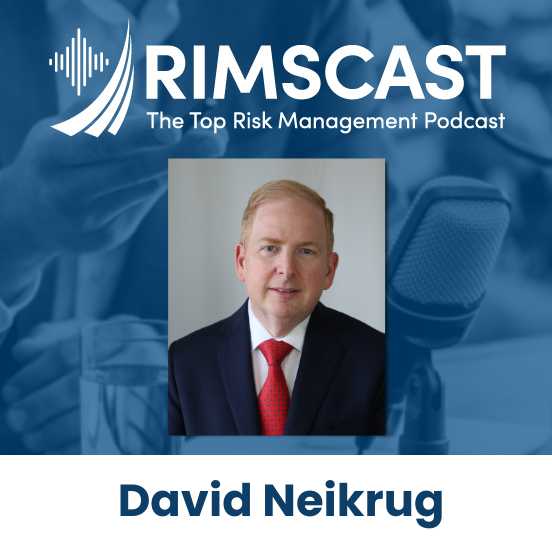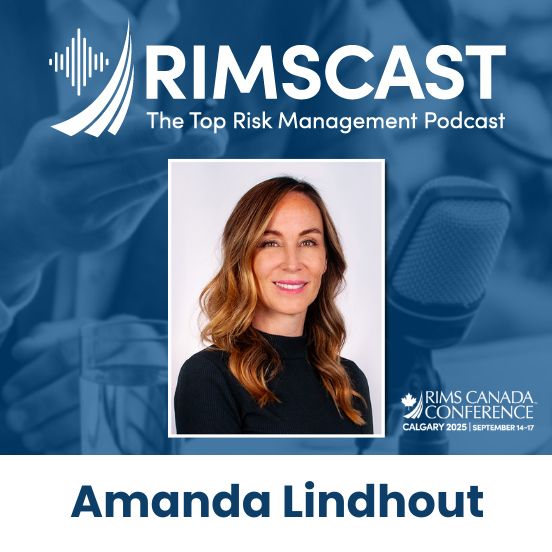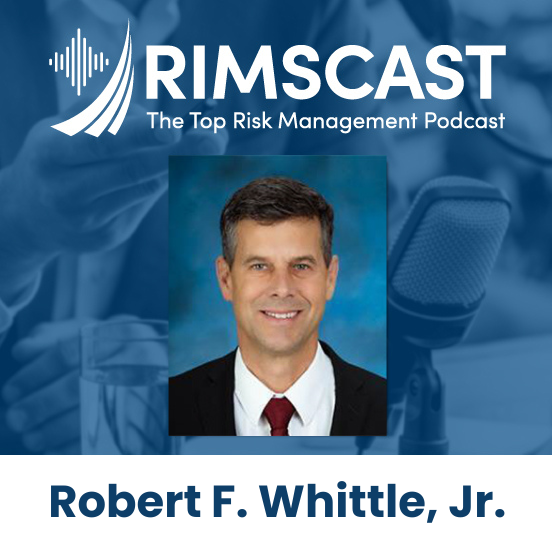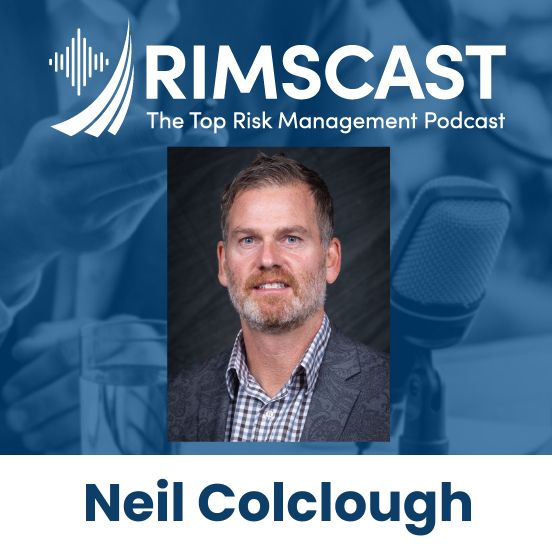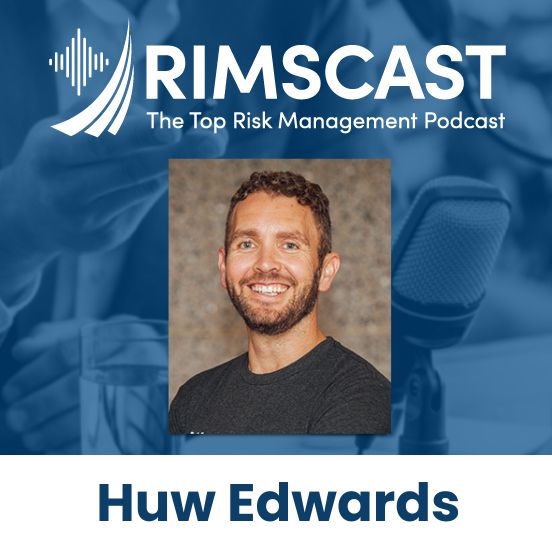Managing Risk, from Farm to Fork with Julie Anna Potts, Meat Institute CEO
Description
Welcome to RIMScast. Your host is Justin Smulison, Business Content Manager at RIMS, the Risk and Insurance Management Society.
In this episode, Justin interviews Julia Anna Potts, President and CEO of the Meat Institute, about her career, background, lifelong interest in agriculture and food, and how she joined the Meat Institute following a career in environmental law. The discussion covers the role of the Meat Institute in the food supply chain and how it serves member companies and the food industry in general, through its food safety best practices and a free online course, "The Foundations of Listeria Control." Julia reveals the Protein PACT initiative and explains how food safety relates to risk management with their shared values. She tells how meat processors are good community members.
Listen for advice on the culture of safety and how it starts at the very top of the organization.
Key Takeaways:
[:01] About RIMS and RIMScast.
[:17] About this episode of RIMScast. We will be joined by Julia Anna Potts, the CEO of the Meat Institute. We'll discuss food safety and education, and risk frameworks that the Institute uses to ensure that our food and supply chains are clean. But first…
[:47] The next RIMS-CRMP-FED Exam Prep with AFERM will be held on December 3rd and 4th. The next RIMS-CRMP Exam Prep with PARIMA will be held on December 4th and 5th. These are virtual courses.
[1:03 ] Links to these courses can be found through the Certifications page of RIMS.org and through this episode's show notes.
[1:11 ] RIMS Virtual Workshops! On November 19th and 20th, Ken Baker will lead the two-day course, "Applying and Integrating ERM."
[1:24 ] "Managing Data for ERM" will be led again by Pat Saporito. That session will start on December 11th. Registration closes on December 10th. RIMS members always enjoy deep discounts on the virtual workshops.
[1:40 ] The full schedule of virtual workshops can be found on the RIMS.org/education and RIMS.org/education/online-learning pages. A link is also in this episode's notes.
[1:52 ] This episode is released on November 18th, 2025, Day Two of the RIMS ERM Conference in Seattle, Washington. We've covered a lot of ERM ground in the last few episodes. For more ERM, click the link to the RIMS ERM Special Edition of Risk Management magazine in the notes.
[2:18 ] RIMScast ERM coverage is linked as well. Enhance your ERM knowledge with RIMS!
[2:24 ] On with the show! Our guest is Julie Anna Potts. She is the President and CEO of the Meat Institute. She leads the Institute in implementing programs and activities for the association.
[2:38 ] She is an agricultural veteran, previously serving the American Farm Bureau Federation as its Executive Vice President.
[2:47 ] With Thanksgiving coming up next week in the U.S., I thought this would be a great time on RIMScast to talk about food safety, food production, and what another not-for-profit is doing to ensure the safety of our products and the speed and efficiency of our supply chain.
[3:07 ] We're going to have a lot of fun and talk turkey, so let's get to it!
[3:12 ] Interview! Julie Anna Potts, welcome to RIMScast!
[3:27 ] Julie Anna Potts and RIMS CEO, Gary LaBranche, are both part of the Committee of 100 with the U.S. Chamber of Commerce in Washington, D.C. They get together with other association heads across industries. Julie Anna says it is very valuable.
[3:44 ] Julie Anna and Gary were talking in the summer about food safety and about what the Meat Institute does, and Gary invited her to be on RIMScast.
[3:57 ] Justin notes that it is the week before Thanksgiving in the U.S. Juliana says they are doing so much in Washington now, and food safety is always top-of-mind around the holidays. There are lots of turkeys and turkey products being sold in the United States.
[4:45 ] Julie Anna says turkey is cultural for Thanksgiving, and poultry, and how you cook it and handle it in the kitchen is incredibly important for food safety.
[5:01 ] Justin asks, Is fish meat? Julianna says fish is protein, but we don't classify it as meat or poultry. Justin wants to keep the argument going with his family at Thanksgiving.
[5:31 ] Julie Anna says they have lots of arguments around the Meat Institute, like whether ketchup belongs on hot dogs. Julie Anna says the answer to that is no.
[5:41 ] Julie Anna has been at the Meat Institute for a little over seven years. She came in as President and CEO. She has been in Washington for most of her career, since undergrad. She graduated from law school in D.C. and worked at a firm.
[5:59 ] Julie Anna has been in agriculture, representing farmers for years. She went to the Senate as Chief Counsel of the Senate Agriculture Committee. She has been at the Meat Institute for the last seven years.
[6:19 ] Food and agriculture have been central to Julie Anna's career and also to her family life. Her husband grew up on a farm. Julie Anna is two generations off the farm.
[6:32 ] They love to cook, dine out, and eat with their children; all the things you do around the holidays, and gather around the Thanksgiving table. They have passed to one of their three children their love of food traditions. She's their little foodie.
[6:52 ] Julie Anna has a career and a personal life that is centered around food.
[7:11 ] The Meat Institute members are the companies that slaughter animals and do further processing of meat. They are in the supply chain between livestock producers and retail and food service customers.
[7:35 ] To be a general member of the Meat Institute, you have to have a Grant of Inspection from the Food Safety Inspection Service of the USDA. The Federal Grant of Inspection is a requirement to be able to operate and to sell into the market.
[7:56 ] When we look at the capacity we have at the USDA, in the last several months, we're not seeing a decline in capacity, but more emphasis on our Food Safety Inspection Service.
[8:18 ] Through DOGE, voluntary retirements, through additional resources coming in with the One Big Beautiful Bill, and through recruiting, the Meat Institute is seeing its member companies have staffing, even through this government shutdown. They're considered essential, as always.
[8:54 ] The Meat Institute was established in 1906 for the purpose of addressing food safety and industry issues. Those are Jobs One, Two, and Three, every day. The Meat Institute has all kinds of education it offers to its members.
[9:15 ] The members of the Meat Institute have strong food safety programs. They have HASSA Plans and third-party audits. The Meat Institute helps any member company of any size, from 25 employees to global companies, with education on, for example, Listeria training.
[9:53 ] The Meat Institute has just launched an online platform that has had great uptake. If you have associates in your business who have never had food safety training, for all levels of folks, there is online, free, and freely available training on how to deal with Listeria.
[10:19 ] All the Meat Institute member companies have significant Food Safety staffing and Food Safety Quality Assurance Programs. Julie Anna praises the people throughout the industry who work in Food Safety for their companies. It's a life-or-death matter.
[10:45 ] Food Safety staff are always seeking to become better, so the Meat Institute has a Food Safety Conference and Advanced Listeria Training (an in-person module). They interface with the regulators, who are partners with the Meat Institute in this.
[11:14 ] The Meat Institute is always striving for better Best Management Practices across everyone's programs, which are never just the minimum. A philosophy of doing just what is compliant does not get you into the best space.
[11:36 ] The Meat Institute is here to encourage Best in Class, always. Food Safety is non-competitive in the Meat Institute. Everyone across the different-sized companies, from 25 employees to 100,000, can feel comfortable sharing what's working for them.
[12:06 ] That is important when it comes to conferences and other things they do. Let's be candid with each other, because nobody can get better if you're not.
[12:17 ] The Meat Institute has seen cultural issues where CEOs don't think about Food Safety and Quality Assurance because they have great people taking care of it. That's true a lot of the time, until it isn't.
[12:42 ] The tone that needs to be set at the very top of the organization is that this is hugely important for risk management. Hugely important for your brand and your ability to operate.
[12:56 ] The Meat Institute board asked, if we are pushing culture down through the organization, what kinds of questions do I need to ask, not just my Food Safety Team, but everyone, and demonstrating my knowledge, understanding, and commitment to governance of this big risk?
[13:31 ] The Meat Institute created a template of a set of questionnaires for executives. It is a C-Suite document and documentation.
<p dir=
